Assassin’s Creed Odyssey Review
Assassin’s Creed Odyssey
How does the latest entry in Ubisoft's epic hold up?
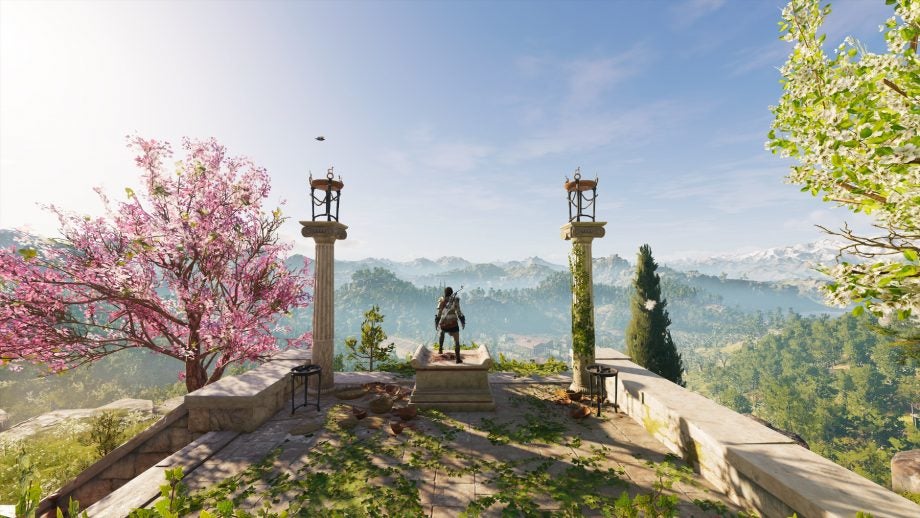
Verdict
Assassin’s Creed Odyssey is another accomplished entry in the long-running open world series. By expanding upon the blueprint established by Origins, Ubisoft has crafted an experience that feels brave, huge and utterly gargantuan.
Pros
- Ancient Greece is a big, bold and beautiful setting
- Combat and exploration frequently encourage experimentation
- Kassandra and Alexios are a great duo of protagonists
- You can be a cool gay warrior lady
Cons
- Dialogue choices and performances are inconsistent
- Romantic relationship options feel forced and unnecessary
- Core narrative is underwhelming at times
Key Specifications
- Review Price: £49.99
- Release Date: October 5, 2018
- Developer: Ubisoft Quebec
- Genre: Action
Assassin’s Creed Odyssey is an expansion of the template Ubisoft set with Assassin’s Creed Origins. It borrows from the best and brightest of open-world design to craft an experience that is, at times, truly outstanding. The islands of Ancient Greece have been recreated with startling scale, boasting an attention to detail so vast that it’s genuinely overwhelming.
Not everything in Odyssey’s world is worth exploring, nor are its virgin attempts at Mass Effect-esque dialogue and romantic relationship mechanics. It’s obvious that Ubisoft is teething through new ideas, throwing myriad things at the wall and seeing what sticks. Some of it does, while others fall to the ground with a distinct lack of grace
Despite this, Assassin’s Creed Odyssey still manages to boast an incredible open-world adventure that strikes a stellar balance between virtual tourism of historical locations and a silly, over-the-top adventure that seldom takes itself too seriously.
Related: Best Gaming Keyboards
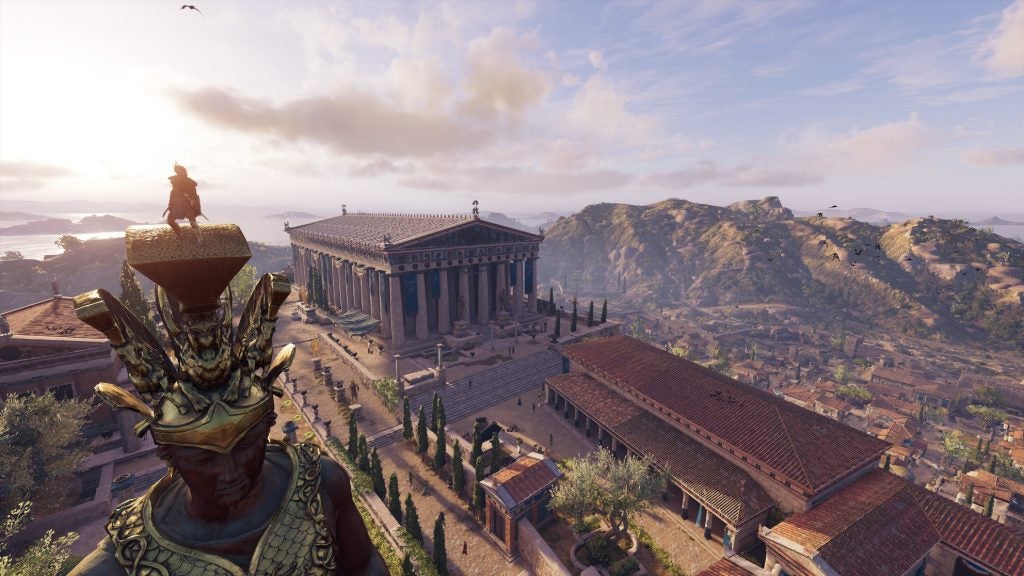
You play as either Alexios or Kassandra, descendants of legendary spartan Leonidas, as they fight the Templars – a group of evildoers who continue to act as the series’ main antagonists, despite still forming throughout this instalment. I took on the role of Kassandra, who is easily the most charismatic and interesting of the two protagonists.
When dialogue fails to deliver, which it often does, her stellar portrayal and evident charm oftentimes steal the show. How she behaves is decided by the player, with a handful of options available in all conversations. They normally follow a binary choice of good or evil, with many quests tasking you with killing an enemy or showing mercy and letting them go.
Odyssey also marks the first time you can engage in romantic relationships, regardless of gender. It’s a welcome step for innovation in mainstream blockbusters, although the way it’s used here is relatively infantile. It’s often an object of comedy or a reward for the player after completing a sidequest.
It’s always consensual, and comedic moments are executed well, but I can’t help but feel it’s a bit of an afterthought. Like many of Odyssey’s debut elements, it’s clear Ubisoft is still finding its feet in a medium where many of its features have been executed far better.
The main narrative is passable, peppered with stunning set pieces that left a smile on my face, but inconsistent pacing and performances prevent it from being something great.
Related: Best Xbox One Games

If you played Assassin’s Creed Origins, you’ll feel right at home here. Within seconds the controls felt like an extension of myself as everything I learnt in Ancient Egypt came flooding back. Exploration is underpinned by the same elements the series has used for years. You’re either exploring the world by horseback or clambering up every building in sight.
Much like Origins, climbing is simplified, executed with a single button. There’s no challenge involved, satisfaction relegated to the gorgeous views on display when synchronising viewpoints rather than the thrill of the climb. However, despite taking a backseat in recent installments, sailing is back in a big way. Your vessel can be upgraded by collecting salvage from enemy ships, which you’ll best in combat through fun yet simplistic encounters.
Exploring the Greek Islands is a frequent joy, and discovering new locations is encouraged as you surpass the level threshold required to conquer even the hardest of areas. They’re packed with an abundance of side quests and points of interest, although the latter become little more than busywork.
Related: Best Gaming Headsets
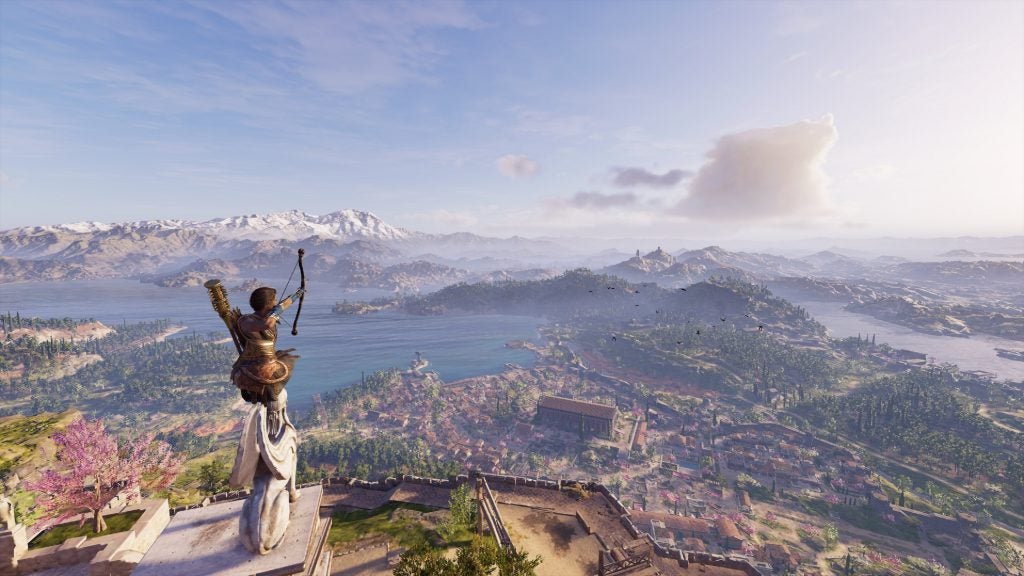
Combat is an absolute blast, ripe with enough customisation for strategy that I didn’t grow bored of things even after 30+ hours of play. Aggression is recommended as you dedicate ability points to a selection of skills. These can range from setting your weapons aflame to unleashing a flurry of arrows onto a group of unsuspecting foes.
Split into three distinct categories – Hunter, Assassin and Warrior – I found myself approaching most conflicts with a unique mindset of skills to pull off. Even the most pedestrian of encounters could be twisted into an experimental delight as I lured foes to their death through a plethora of exhilarating abilities. That kick from 300? Leonidas must have passed it down through the ages because his descendants can do that.
You can’t just hack your way to victory either, as many enemies have shields which require either a heavy weapon or shield breaker to deal with. Most skirmishes aren’t particularly challenging unless you deliberately fight higher-level adversaries or partake in Conquest Battles – huge encounters that become available once you’ve wiped out the leadership of each isle.
While enjoyable, the impact these have on the world you explore feels negligible, so I didn’t see a point engaging with them. Odyssey suffers from this in many areas, failing to make your place in the world feel meaningful beyond the wider narrative at play.
One point saw me stumble into Athens where a plague had apparently overcome the populus. I had no idea, and the environmental cues made it equally unclear. This, combined with mediocre scripting, twists presumably epic moments into farces of incidental hilarity. It is clear that the systems Ubisoft is trying to ape from its superiors are stumbling through infancy, and the weight of the world Odyssey tries to present falters as a consequence.
Related: Forza Horizon 4 Review
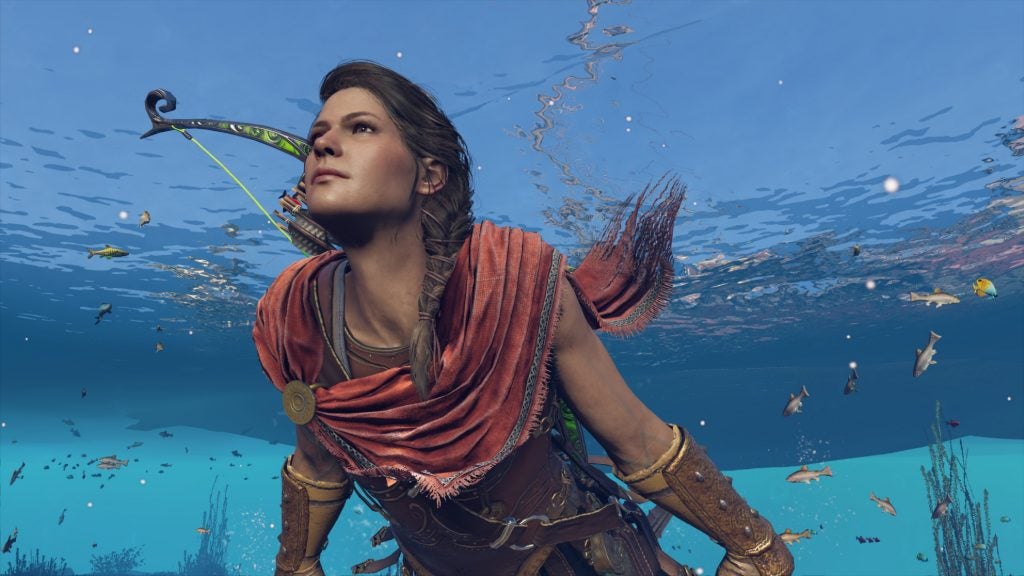
Outside of the flawed yet lofty ambitions Ubisoft clearly has for the series, Odyssey still excels in what matters: making you feel like a strong, unstoppable assassin. The Hidden Blade is nowhere to be seen, replaced by the tip of Leonidas’ Spear, but stealth still acts as a meaningful part of moment-to-moment gameplay.
Unless a mission demands it, the majority of encounters can be tackled from the shadows. There’s only a few major targets you’ll assassinate throughout the campaign, often built up to with a series of epic missions as you either infiltrate their inner circle or engage them in a full-frontal assault. Instead, you’ll be hunting The Cult of Kosmos by uncovering clues hidden across Ancient Greece.
Tracking down targets by digging up a series of dynamically placed clues is an engaging idea, and the rewards for doing so kept me invested when I should have been tending to more important matters. Obtaining artifacts from defeated cult members allows you to upgrade your spear in ruins spread across the map, many of which harken back to an Ancient Civilization that ties into Odyssey’s brief excursions in the modern day.
Related: Super Smash Bros Ultimate
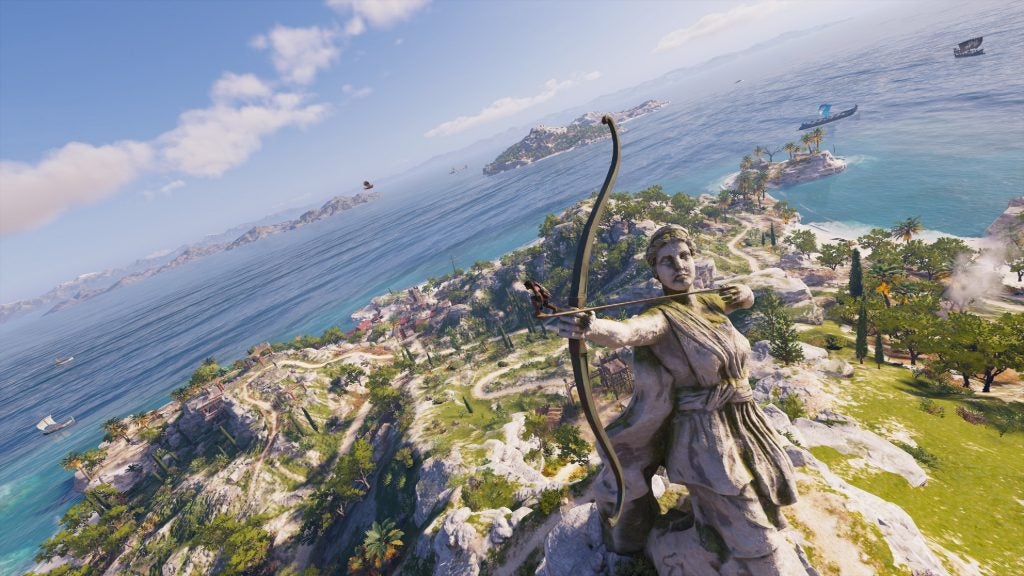
Assassin’s Creed has gained an infamous reputation with past instalments by filling the map with an incomprehensible mess of icons. Side content became nothing more than pointless chores for shinier pieces of armour and extra points for upgrades. Odyssey supersedes this with Explorer Mode, described by Ubisoft as “the way it’s meant to be played.”
It removes waypoints from the map, no longer showing you the quest objective outright. Instead, you’re provided three clues that will inevitably lead to where you need to go. It’s a clever innovation, forcing the player to analyse the map in detail to find specific locations. It turns every quest into a standalone adventure, although I wish the user interface was more intuitive as switching to the map every ten seconds is a chore. It’s not without flaws, but Explorer Mode is a positive stepping stone for the future.
It’s also helped that many quests, aside from generic daily contracts, encompass characters with their own stories and motivations to share. At times I felt invested, curious to see how they’d conclude. That is, whenever the performances didn’t border on absurd hamminess.
Verdict
Assassin’s Creed Odyssey is another accomplished entry in the long-running open world series. By expanding upon the blueprint established by Origins, Ubisoft has crafted an experience that feels brave, huge and utterly gargantuan.
Seeing everything it has to offer could take hundreds of hours, even if much of its side content feels superfluous, offering little more than small droplets of experience and equipment you’ll never use.
That said, the foundations being built paint an exciting future for Assassin’s Creed, even if its dialogue system and romantic pursuits falter more often than they succeed. Those hungry for more of Assassin’s Creed needn’t go wrong here, as Odyssey presents an exhilarating depiction of Ancient Greece to explore.


